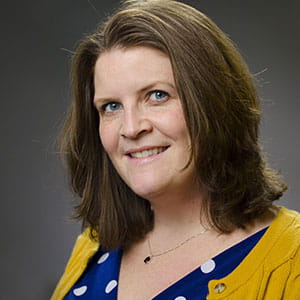Drexel Talks Climate Change
 By Katie Clark
By Katie Clark

- Drexel University's Recent Academic Activity: Sponsored Opportunities and New Partnerships From Fall 2025
- Faculty Highlights: Recent Awards and Grants from Fall 2025
- ADHD Symptoms Predict Distinct Creative Problem-Solving Styles and Superior Solving Ability
- Dragons on Fire: Kudos for Student Achievement: Fall 2025

Drexel graduate student Paul Sesink Clee stood in awe as thousands of researchers, policy-makers, NGOs and other members of civil societies from around the world swarmed around. Nearby, and feeling equally invigorated, was colleague Franco Montalto, PhD, an associate professor in the College of Engineering, who described the experience as one of the most professionally rewarding of his career.
Sesink Clee and Montalto were two of eight that made up a Drexel delegation invited to attend the two-week 21st Conference of Parties, or COP21, an annual United Nations conference on the subject of the climate and climate change in December. Drexel’s status as “observer” granted the University a certain amount of tickets to the event, and Drexel’s Office of International Programs and the Institute for Energy and the Environment organized and partially supported the delegation’s trip.
According to Adam Zahn, academic programs manager for the Office of International Programs, the hope is to send more Drexel representatives every year (in particular, Drexel students).

At a special event on Drexel’s University City Campus on April 6, several of the eight delegates will present outcomes from the conference, as well as aspects of their fields of study that relate to climate change. One topic of discussion at the event will be the United States’ support of a proposal to cut global emissions of greenhouse gas, in hopes of stalling global temperatures from rising as much as 3.6 degrees by the year 2100 — a benchmark scientists say would be of great concern. The U.S. Department of Energy took the first step toward reaching this goal when it announced new energy efficiency standards for commercial air conditioners and furnaces.
The standards, which will require manufactures to produce new, more efficient air conditioning units and furnaces starting in 2018, could reduce carbon pollution by as much as 885 metric tons and save consumers $167 billion in utility bills over the lifetime of the products.
“This was an important step because climate considerations, like concerns about sustainability and resilience, need to be integrated into everything we are doing,” said Montalto. “And now, finally, there is a mandate, a global mandate, that the heads of state have signed on to. This is how we have to think about it — in a comprehensive way — because these issues are cross-cutting and have implications for how we plan, design, steward, use and maintain just about everything around us.”
“We really need to have a larger change being put into place, rather than just some person recycling, or using less electricity,” Sesink Clee added. “I think it is more important to raise awareness of all the different ways that we can combat our effects of climate change on a global scale. We can be a larger group talking to policymakers, and then some real change can actually happen on a larger scale.”
“It was an absolute privilege to attend this conference,” Montalto said. “And we ought to continue to send Drexel students and faculty there, because it is at events like this that globally engaged researchers and citizens find their calling. Drexel started as a commuter school, but now we are participating in very real ways in dialogue of global significance — that’s a very exciting evolution of Drexel.”
COP21 also gave increased attention to the important role of cities, states and provinces at the sub-national level. As a leader in civic engagement, Drexel recognizes the importance of local action as seen by the recent publication of a report crafted for the City of Philadelphia in the fall. The 97-page report, which was funded by the A.J. Drexel Institute for Energy and Environment, details pathways by which emissions could be reduced by 80 percent by the year 2050 in the transportation, energy and building sectors.
“Drexel at COP21” will be open to the public and take place on Wed., April 6 from 5 to 6:30 p.m. in the Papadakis Integrated Sciences Building, room 112. Select members of the COP21 delegation will present their topics of expertise and takeaway highlights from the conference. The group will also discuss how Drexel can continue to grow its presence at this annual conference and other opportunities for students who would like to be involved in research and action.
To RSVP for the event, email global@drexel.edu.
Drexel News is produced by
University Marketing and Communications.